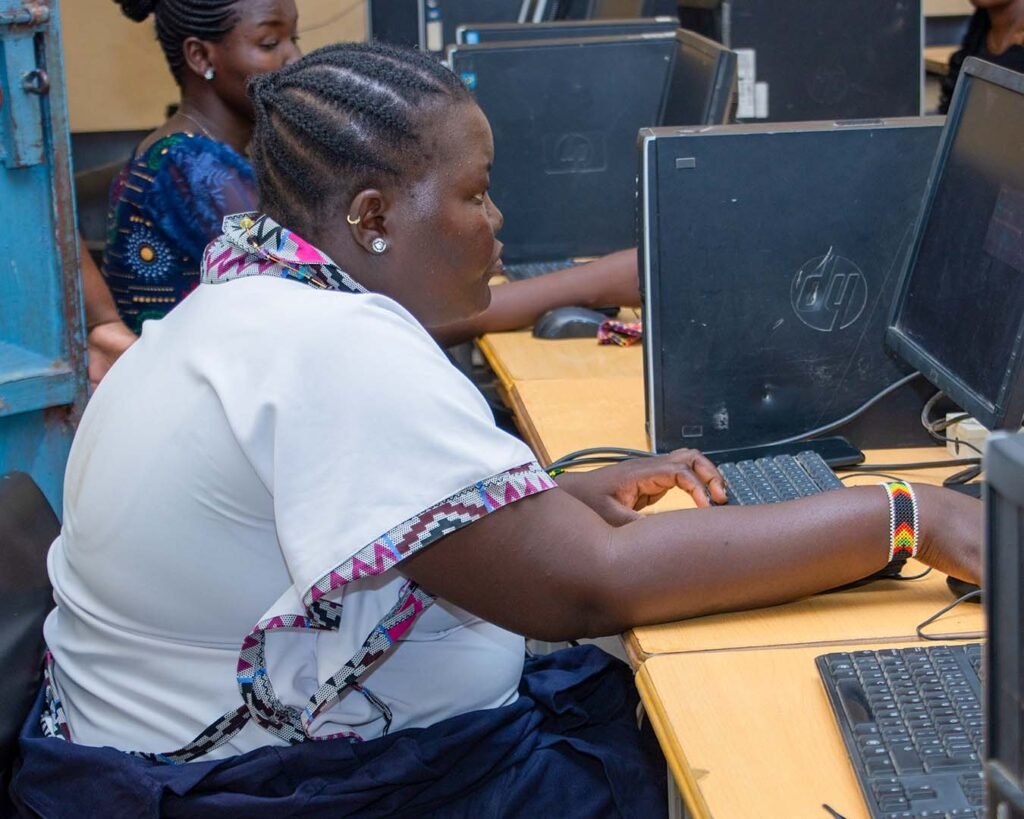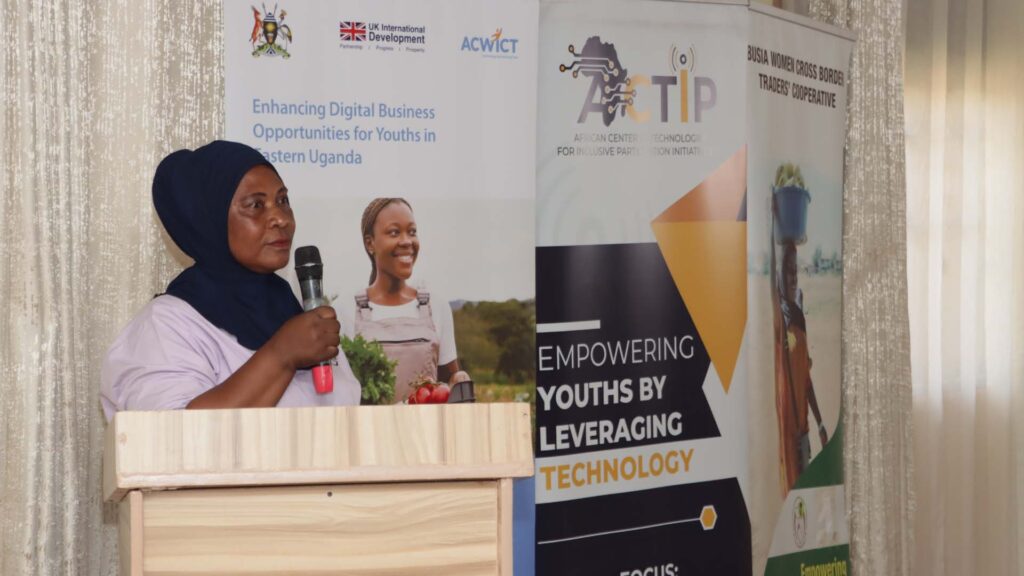Skills for Inclusive Digital Participation (SIDP)
Project Purpose and Objectives
The SIDP project was designed to provide digital skills training to marginalized communities, specifically targeting women, youth, and people living with disabilities (PLWDs) in Mathare and Kibera. The project aimed to enhance digital inclusion by equipping participants with essential digital literacy skills, thus enabling them to participate effectively in the digital economy.

Key Objectives
-
Recruit and Train Community-Level Trainers (CLTs)
– Recruit 25 CLTs from Mathare and Kibera.
– Provide intensive training to prepare CLTs for delivering digital skills training to beneficiaries.
-
Digital Skills Training
– Basic Training: Train 750 participants on basic digital literacy.
– Intermediate Training: Train 250 participants on intermediate digital skills, including general digital skills and economic opportunities.
-
Focus on Inclusivity
– Ensure a significant representation of women, youth, and PLWDs among the trainees.
Project Deliverables
-
Community-Level Trainers (CLTs) Recruitment and Training
– 25 CLTs recruited and trained, with a focus on gender balance and inclusivity.
-
Digital Skills Training
– Basic Training: 813 beneficiaries completed basic digital skills training, surpassing the target of 750.
– Demographics: 619 women, 40 PLWDs, 763 youths.
– Intermediate Training: 264 beneficiaries completed intermediate digital skills training, surpassing the target of 250.
– Demographics: 202 women, 7 PLWDs, 248 youths.
-
Mobilization of Participants
– A holistic mobilization strategy was employed to recruit participants, including community mobilizers, women’s groups, and youth social groups.
-
Training Support
– Centers in Kibera and Mathare were strategically chosen to accommodate PLWDs and young mothers.
– Provision of transport reimbursement and refreshments to motivate participation.
Key Impact/Results
The SIDP project successfully met and exceeded its training targets, demonstrating a significant impact on the target communities:
- Training Reach: 1077 individuals trained in digital skills, including both basic and intermediate levels.
- Inclusivity Achieved: The project successfully engaged women, youth, and PLWDs, contributing to digital inclusion in marginalized communities.
- Sustainability: Partnerships with local organizations ensured ongoing support for participants even after the training, including access to internet facilities and continued membership in training centers.





